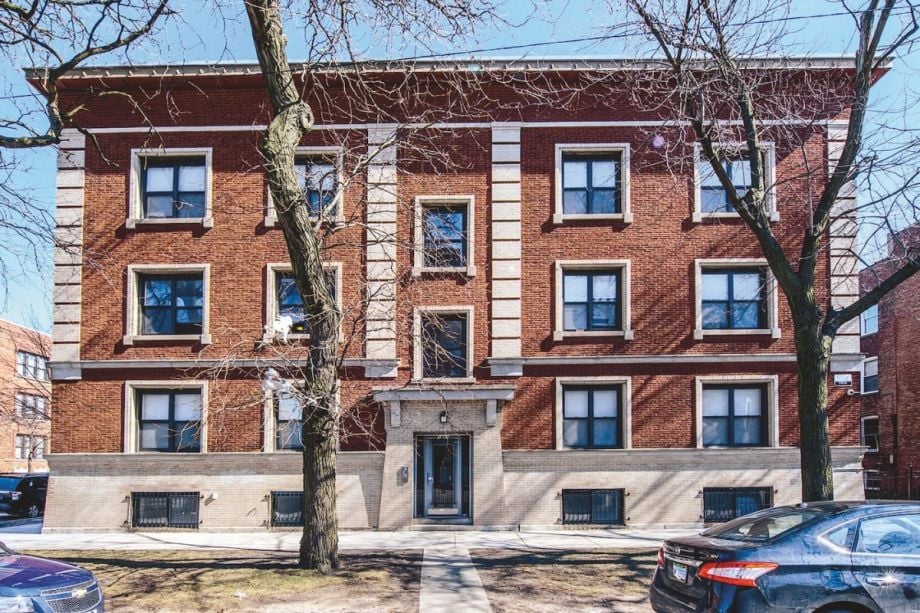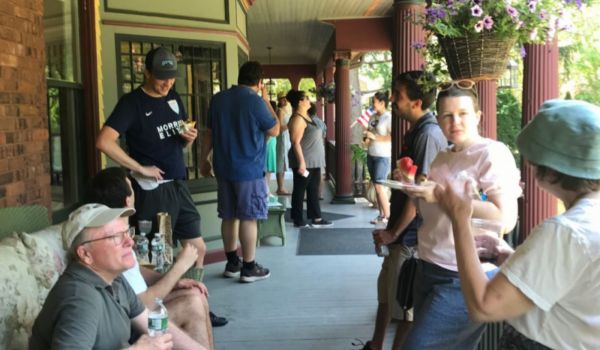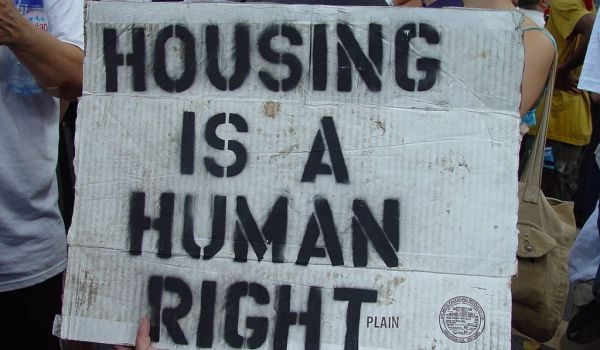While building affordable housing is a hot topic, new buildings only account for about a quarter of the affordable housing market. The rest is comprised of Naturally Occurring Affordable Housing, or NOAH, which falls between subsidized housing and high-rent buildings. However, that too is that risk. In Chicago, 10% of NOAH housing was lost from 2012-2019.
One Chicago CDFI has been working to preserve that housing for decades. Called Community Investment Corporation (CCI), they have a wide range of programs, including their Troubled Building Initiative, to support the acquisition, rehabilitation and preservation of affordable rental housing.
CEO Stacie Young says they started in the ’80s by creating access to credit for primarily local owners to buy and rehab multi-family housing in historically disinvested neighborhoods, as well as for small-business owner acquisitions. They did this in part by creating funding pools of lenders with a shared-risk model. Now, they have $330 million dollars of loan capital committed by 40 lenders to preserve naturally affordable rental housing.
They also offer a suite of services to support and educate the landlords who borrow from them, including training on best practices, resources and building code updates. The goal is to help landlords serve as better stewards of affordable buildings. Young says a survey found that half of their borrowers are people of color, and many are local.
“We usually don’t think about landlords as businesses, but they are,” Young says. “They need the same support.”
Their 20-year-old Trouble Buildings Initiative (TBI) is aimed at unresponsive landlords. Instead of the city of Chicago filing code violations, TBI pulls together multiple city departments including housing, police and building, to identify at-risk structures and appoint CIC as a stakeholder to make repairs.
“We know some don’t take care of their buildings,” Young says.
Eugenia Orr, executive director of public affairs at Chicago Department of Housing, says the program has proven successful.
“CIC enables the city to leverage our limited resources to provide full lifecycle solutions to troubled buildings and neighborhood development,” Orr says. “Their experience supports the swift action necessary to navigate all programs and quickly solve housing-related concerns.”
CIC also brings together multiple organizations to collaborate on strategies, policies and programs to preserve affordable housing through its Preservation Compact. Preservation Compact is home to a $48 million acquisition pool for 1-4 unit buildings, and a $34 million low-cost financing fund for affordability in higher-cost markets. It costs less to preserve affordable housing than to build it.
Policies they’ve advocated for include building code relief to encourage owners to maintain standards, as well as energy efficiency strategies.
One notable product of this multi-org collaborative is tax relief for multi-family housing which incentivizes low- to moderate-income owners to improve buildings while keeping them affordable. This is critical to preserving more locally-owned NOAH stock as national markets face speculation from aggressive investment groups without stake in community stability.
“Here in Chicago, we’re looking at rents of $800-$900 a month for neighborhoods without subsidy,” Young says. “And in higher-cost neighborhoods, they’re going up to $1,200-$1,700 a month. This tax incentive is a way for owners to keep rents affordable in those higher-cost markets where the rents are going up.”
Young says since that law was passed last summer, CIC and the Preservation Compact have been working hard to inform owners about the tax incentive.
Jonah Hess, director of Community Initiatives Inc., notes that TBI and the acquisition side are a core part of CII, but the platforms are utilized differently.
“We support other city initiatives in specific neighborhoods of Chicago to revitalize with other partner nonprofits,” he says. “Many of these are existing citywide tools concentrated into smaller areas. So there’s assistance available for homeowners, landlords and commercial corridors for businesses.”
Clearly, this also happened against the backdrop of the pandemic, and preserving basic, safe, affordable housing was more critical. But tax incentives, property lending and building code relief have costs. So where does the funding come from?
While there’s a small allotment of corporate funding for businesses otherwise ineligible, the primary funding for preserving affordable housing comes from federal funds for infrastructure called Community Development Block Grants, or CDBG. Chicago gets a direct allotment from the federal government each year.
“Chicago is a large city, and they’re able to use it in many different ways,” Hess says. “So it’s interesting to see how that funding shows up at local levels … The program is outsourced in a manner that lets us quarterback and run it in a way that makes it a lot less political, and the priorities can come from a place of shared interests.”

This story is part of our series, CDFI Futures, which explores the community development finance industry through the lenses of equity, public policy and inclusive community development. The series is generously supported by Partners for the Common Good. Sign up for PCG’s CapNexus newsletter at capnexus.org.
Hadassah Patterson has written for news outlets for more than a decade, contributing for seven years to local online news and with 15 years of experience in commercial copywriting. She currently covers politics, business, social justice, culture, food and wellness.


_920_614_600_350_80_s_c1.jpg)
_600_350_80_s_c1.JPG)












